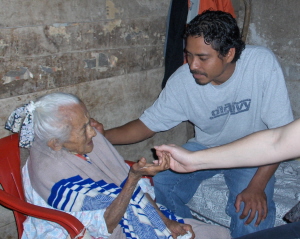The dangers of dependency on a mission trip (part 1)

First in a series on the issue of dependency, focusing on your
objectives in going.
 If you are working with a
If you are working with a
host partner and your objective is true partnership, then you will each work to
serve one another. You communicate your
objectives to your host partner and he will work to help you achieve them You in turn communicate your need to understand and helps him achieve his objectives.
A reader writes: “One thing I’m not certain about – why shift
the [STM] project site? In our case, I have one church I work with regularly because
the need is consistent and severe, I know what to expect and can plan, and
because the kids are able to establish real relationships with the people we
serve.”
It’s a good question. The issues of partnership and dependency are
at the heart of missions. To change
locations year after year requires a lot of extra work in organizing an
STM. It’s far less complicated to go
back to the same place where you know the logistics and people and can
calibrate your expectations accordingly. Why would you ever go to a new location?
The answer hinges on the
answers to two other questions:
- What are we trying to accomplish in the lives of
our STM participants? - What are we trying to accomplish in serving our
host partner?
Here are some possible objectives for the STM
participants:
- To have their hearts broken.
- To better understand and commit to the Great
Commission. - To confront their own materialism.
- To confront their own narcissism.
- To confront their own peculiarly American A.D.D.
- To learn to hear the Lord’s voice.
- To learn how to minister.
- To learn how to depend on and obey the Holy
Spirit.
Here are some possible objectives for host partners:
- To share Jesus’ love to the community in a
tangible way. - To encourage the local body of Christ.
- To grow the local body of Christ.
- To plant a church.
- To in some way disciple local believers.
Tomorrow’s blog addresses dangers to the host church from dependent relationships.

Leave a Reply